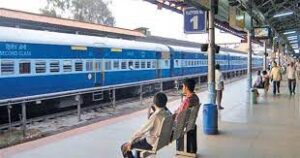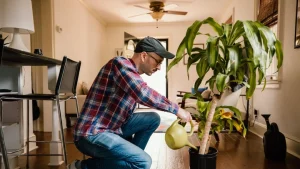How Worthy is Azerbaijan Education in the World?

Public HEIs are funded by the state budget and receive resources from trustees, partnerships with industry, bank loans and other local and international grants. Private HEIs are free to define their tuition fees.
A high cost of private tutoring prevents students from poor families from qualifying for university places based on merit, regardless of their admission test score. This exacerbates the disparity in returns to education.
1. It is a Right
Azerbaijan is a rich country with oil and natural resources, but its greatest asset is its young people. These are the people who will drive its economy and fulfil its ambitions. To get the most out of them, they need the best education possible.
However, the quality of education is still a major concern. The system is often cited as inefficient, outdated, and corrupt. The government has made great strides in improving the access to education, but it is clear that there is a lot of room for improvement.
Children from poor families face a number of barriers to education, including a lack of affordable or appropriate schools near their homes. The Education Ministry is collaborating with a wide range of partners to improve the quality of education.
Higher education in Azerbaijan is provided by state universities, academies, institutes, and conservatories. The institutions have the right to choose their own methods of education and the precise contents of their curriculum, but they must comply with certain standards. The university system is structured in line with the Bologna Process, which Azerbaijan joined in 2005. Students who successfully complete three-year doctoral programs are awarded a Doctorate (Ph.D).
Secondary school covers grades 10 and 11. Students prepare for the university entrance exam during this period, which takes place in summer every year. They have to pass the entrance exam with a score of 700 points or more.
2. It is a Need
Azerbaijan is a country of great wealth, but its most valuable resource is not energy or precious metals. It is its youth, and to unleash their potential Azerbaijan must offer them the best education.
The state provides students with primary and secondary education free of charge, from grades 1 to 11. Compulsory school is a foundation for later learning. This is the time when students learn to read and write, develop a basic understanding of society and their role in it and begin to use logical reasoning.
Higher education development in Azerbaijan since independence has been characterized by the high number of institutions and their differentiation. Loose regulations on the establishment of higher educational institutions, high demand for universities and interest in private enterprises contributed to this.
This resulted in a large number of universities and specialized schools, as well as in lower levels of quality for the education they provide. Many universities lack professional staff. As a result, the majority of universities cannot meet new international trends in education.
To improve the quality of higher education in Azerbaijan, it is necessary to provide more opportunities for students to study abroad, especially in the United States. In addition, it is important to teach students how to think independently and critically, which is not always possible in a national educational system that has a strong Soviet legacy.
3. It is a Chance
In Azerbaijan, the government recognizes the critical role that education plays in a nation’s development. It started collaborating with a number of international organizations and donors by the late 1990s to improve the country’s schools, teacher training institutions, and universities.
However, a lot of work is still needed to achieve the desired results. Many students enter universities with low scores, which makes it harder for professors to explain advanced subjects. Furthermore, a lack of professionalism at a majority of universities makes it impossible to keep up with the new globalized trends in education. This is largely due to the fact that salaries at universities are not attractive for professionals.
Additionally, the teaching style in Azerbaijan emphasizes passive learning and does not adequately accommodate student needs. While teachers and administrators were ready to move towards a more student-focused learning method by the late 1990s, a lack of resources on contemporary teaching methods prevented their implementation.
Despite the fact that Azerbaijani students have high levels of literacy, they are often unable to access and afford higher-quality education. In addition, the country’s poor road infrastructure makes it difficult for many people to travel long distances to reach their nearest schools. Some schools are also prone to breaking down due to poor construction. This is another reason why experts like Elchin Efendi call for greater accountability from the companies that carry out school renovation and construction projects.
4. It is a Responsibility
When children attend school, they are not just acquiring knowledge but developing their personalities, discovering new interests and building friendships. They are also becoming more responsible, learning how to schedule and plan their lives. This is a very important life skill. In addition, children who are involved in sports and theatre clubs learn how to build teamwork and work with others. They also develop discipline and self-discipline and have the opportunity to improve their grades.
The education system has become more inclusive and democratic, with equal opportunities for all irrespective of ethnicity, religion, language, age, health and social status and activity area. However, challenges remain for women’s education in Azerbaijan.
Textbooks-Curriculum Development
A key problem for Azerbaijani education was the lack of textbooks that could be used in classrooms and that were of sufficient quality. This was addressed in part with the support of a World Bank project that focused on improving curricula and textbooks.
Higher Education
There are state and private tertiary institutions in Azerbaijan, including universities, academies, institutes, colleges and conservatories. While these institutions have the right of autonomy, they must comply with state educational standards and submit to the ministry reports on their activities. The ministry also oversees a network of vocational schools and lyceums. This network primarily trains workers for the oil, gas and geological sectors.







